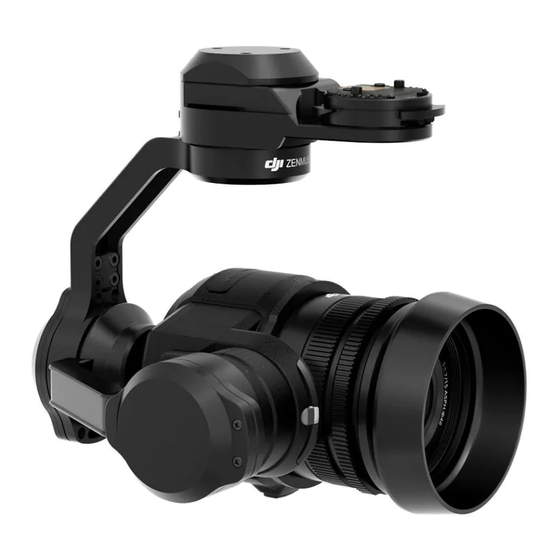dji Zenmuse X5 Podręcznik - Strona 10
Przeglądaj online lub pobierz pdf Podręcznik dla Aparat cyfrowy dji Zenmuse X5. dji Zenmuse X5 11 stron. For inspire 1 pro
Również dla dji Zenmuse X5: Podręcznik użytkownika (17 strony), Podręcznik użytkownika (11 strony), Podręcznik użytkownika (18 strony), Podręcznik użytkownika (18 strony)

Start Motors: CSC command
Home Point: Blue dot Location correct on map
Initial Check: motor sound check
Climb: climb to 2m
Control Tests: Test all controls
GPS & ATTI Test: Test both modes function correctly
Landing Gear: Raise Gear and fly!
10. Line of sight = Line of communication
If you can see your drone then the chances are the remote control can also communicate with it. Distance can have
an effect on radio communication and the laws vary from country to country on how far you can fly a drone. Here in
the UK we are limited to flying within line of sight (defined as 500m from the pilot). It's not all about distance though!
Lets say you're filming a large circular water tower that's only 30m away and you're thinking about grabbing a nice
orbit shot around it. Even though the drone may only be 40m from you as it passes around the back of the tower
there's a good chance control will be lost as the radio signal cannot transmit through the tower. At that point the
drone would switch to failsafe mode, climb to the preset altitude and then fly back to home point. If you'd set the
failsafe altitude higher than the tower and there were not other obstacles in the way you might be fine. If the failsafe
altitude was lower than the height of the tower then it would be goodbye drone!
Try and keep the drone in sight at all times.
11. Know when to disable VPS
Okay I know that's more than 10, this one is a bonus! The
Phantom 3
models as well as the
Inspire 1
both include
VPS (Vision Positioning System) modules that help maintain position and height at low altitude. Most of the time the
VPS will help you but there are times when having it enabled could cause you problems.
If you're flying indoors or in an exterior location with objects above the drone you might want to disable the VPS to
stop the drone from maintaining its height automatically. If for instance the drone is flying over objects on the ground
then having the VPS enabled will result in the drone adjusting its height as it passes over each object and possibly
colliding with the ceiling or obstacles above it.
You can disable VPS in the Go app as seen in the image below...
